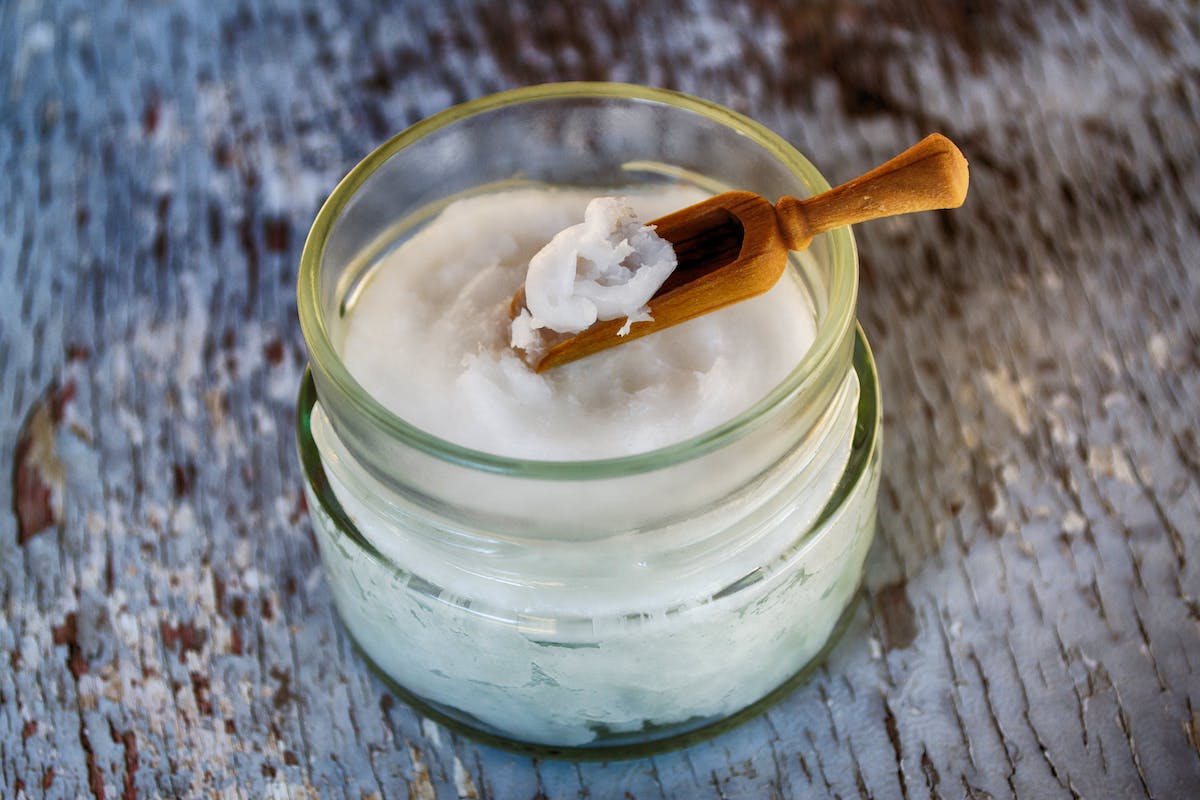
“Oil” was reserved for keeping our car running or as a cooking ingredient. Coconut oil certainly fits the latter bill. However, oils have also been popping up in other forms — the essential oils that keep homes smelling fresh (or perhaps helping us focus). Some are even in beard and skin care products, again, coconut oil included.
Why might a person use coconut oil for skin health? As with many grooming and wellness topics, there are tons of claims one might approach with a skeptical eye, especially if they pop up on social media. Eczema relief, anti-inflammatory properties, and banishing dry skin are among the potential coconut oil benefits enthusiasts point to. Of course, skincare products and social media influencers push tons of ingredients, swearing they’re cure-alls. While coconut oil may not be a miracle fix for skin issues like dry skin, you may benefit from using the ingredient. Why is coconut oil good for your skin? What are the risks of using coconut oil for skincare? Let’s crack open some answers.

What is coconut oil?
Sometimes, food names are misnomers. For instance, cranberries aren’t actually berries. However, coconut oil is derived from coconuts, as the name implies. The oil is saturated and generally considered “unhealthy” in nutrition. Like other saturated fats, coconut oil is solid at room temperature but can be melted or softened with heat, such as a stove.
Coconut oil is packed with fatty acids, primarily lauric acid. The thought is that these acids, especially lauric, may contain numerous benefits for the skin, including aiding with conditions like acne, eczema, psoriasis, and dryness.

Is coconut oil good for your skin?
Some research points to use, but data is still emerging. There is a chance that using coconut oil for skin issues like acne and eczema can provide relief to sufferers. Additionally, coconut oil benefits might include moisturization — a big win in the winter when the frigid air outside and dry air instead, courtesy of indoor heating, can leave skin flaking and irritated. Here’s what to know before overhauling your skincare routine.
Some benefits of coconut oil for the skin might include the following.
Moisturizing dry skin
Dry skin may not be a diagnosable condition like acne and eczema, but the issue can still be pesky and even painful. Cracked feet can be hard to walk on, and red, flaking hands and facial skin can be itchy and leave you feeling self-conscious. That’s no fun. Some older research found that applying coconut oil to the skin upped hydration. A more recent review published in 2020 found that using extra virgin coconut oil upped skin hydration by almost 25% — not bad. Try coconut oil to the skin via a product or directly to boost hydration and leave you looking and feeling better.
Inflammation
Lack of hydration can have a ripple effect on the skin, causing the barrier to break down. When the barrier is compromised, invaders can enter more quickly, and inflammation can pop up, causing irritation. Inflammation is also a hallmark of skin conditions, including psoriasis and eczema. Animal studies suggest topical coconut oil could boast anti-inflammatory properties.
Acne
Acne doesn’t stop when we hit the age of 20. Is coconut oil the cure for adult acne? Not necessarily, but it might help you specifically. Inflammation is also an issue for people with acne. Some research supports the idea that lauric acid — which coconut oil is rich in — can have acne-banishing properties. That said, some people may notice coconut oil worsens their acne. You may have to engage in a little trial and error to see where your skin stands.

Applying coconut oil to the skin
You can find coconut oil in skincare products, like moisturizers. Using these products is the most straightforward way to use coconut oil and leaves mixing ingredients for the professionals. However, people can also apply coconut oil directly to the skin.
First, you’ll want to pick the right coconut oil. Most research regarding the benefits of using coconut oil for skin is around virgin or extra-virgin coconut oil. Opt for one of these types if you apply coconut oil directly to the skin rather than using a product containing the ingredient.
Apply a small amount of coconut oil to a patch of slightly damp skin (towel dry slightly after a shower). After a few days of patch testing, you can apply more broadly. Massage the oil into the skin, avoiding the eyes.
Stop and speak with a dermatologist if you notice irritation, redness, or a rash.

Takeaway
While we still have much to learn about the benefits of coconut oil for skincare, some evidence supports the idea the ingredient is beneficial. Coconut oil might help ease dryness, inflammation, and acne. You can find coconut oil in skincare products, but you can also apply the oil directly to your skin. Patch test a small area by massaging coconut oil into slightly damp skin for a few days. If you don’t notice irritation, apply the oil as you please. If you begin noticing irritation, stop and speak with a dermatologist, who can help you find products best suited for your skin and navigate issues like acne and dryness.



